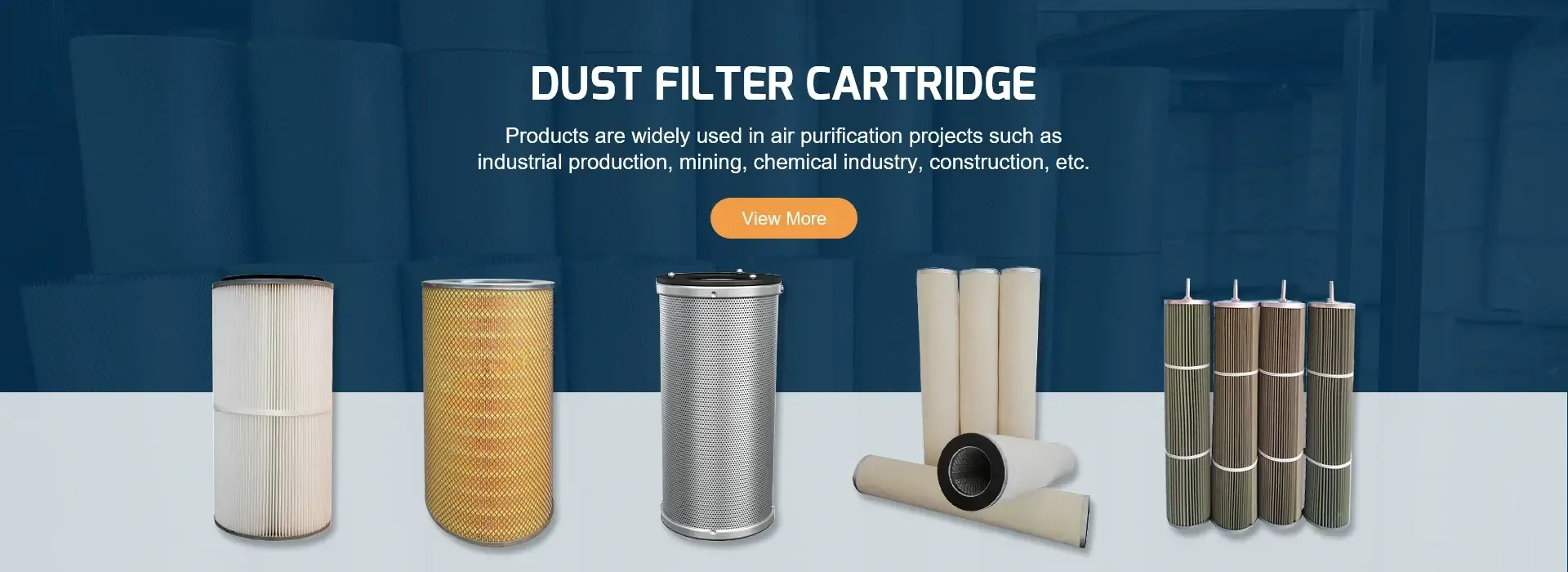 Tel:
+8615930870079
Tel:
+8615930870079
dec . 04, 2024 15:59 Back to list
Effective Cartridge Filters for Industrial Dust Collection Systems
The Importance of Industrial Dust Collector Cartridge Filters
In various manufacturing and industrial environments, maintaining air quality is of paramount importance. Among the methods employed to achieve this, dust collection systems play a crucial role in capturing harmful particles and maintaining a healthy workspace. One of the most effective components of these systems is the cartridge filter.
What are Cartridge Filters?
Cartridge filters are cylindrical filtration devices designed to capture dust and other particulates in a variety of industrial applications. They consist of a filter medium encased in a rigid structure, allowing for high-efficiency dust collection with relatively low resistance to airflow. The design of cartridge filters enables a larger surface area for dust collection while minimizing the space required for installation, making them an ideal choice for numerous industrial settings.
How They Work
The operation of cartridge filters is based on the principles of mechanical filtration. As air laden with dust and particulates enters the dust collector, it passes through the filter medium. The design allows particulates to become trapped within the filter, while clean air exits through the other side. Over time, as more dust accumulates, the filter may require cleaning or replacement to maintain efficiency. A critical feature of modern cartridge filters is their ability to be cleaned using various methods, such as reverse air pulsation, which dislodges the collected dust and restores the filter’s effectiveness.
Benefits of Using Cartridge Filters
1. High Efficiency Cartridge filters are known for their high particulate capture efficiency. They can effectively filter out fine dust particles that may pose health risks to workers. This is particularly vital in industries such as pharmaceuticals, food production, and metalworking, where airborne contaminants can lead to serious health implications.
industrial dust collector cartridge filters

2. Space-Saving Design The compact nature of cartridge filters allows them to be installed in spaces where traditional filter bags may not fit. This is advantageous for facilities with limited operational space but still requires efficient dust management.
3. Cost-Effectiveness While the initial investment in cartridge filters can be higher than other filter types, their durability and efficiency lead to lower operational costs over time. They often require less frequent replacement and can be cleaned and reused, which reduces waste and expenditure.
4. Flexibility Cartridge filters can be tailored to suit specific applications, accommodating different types of dust and operational conditions. This versatility makes them suitable for a broad range of industries, from woodworking to chemical processing.
Environmental Considerations
Investing in effective dust collection solutions like cartridge filters not only benefits workplace safety but also contributes to environmental sustainability. By reducing airborne dust emissions, industries can minimize their environmental footprint and adhere to regulatory standards. Furthermore, cleaner air in industrial settings can lead to better workforce productivity and well-being, resulting in lower health-related costs for employers.
Conclusion
Industrial dust collector cartridge filters are an essential aspect of modern manufacturing and processing facilities. Their ability to efficiently capture harmful dust particles, combined with their space-saving designs and cost-effectiveness, make them a preferred choice for maintaining air quality. As industries continue to prioritize both employee health and environmental responsibility, the role of cartridge filters will only become more critical. By investing in these advanced filtration solutions, businesses not only safeguard their workforce but also enhance their operational efficiency in an increasingly competitive market.
-
Nano Fiber Technology: Revolutionizing Cartridge Dust Collector FiltersNewsAug.06,2025
-
How Activated Carbon Air Cartridges Eliminate OdorsNewsAug.06,2025
-
Dust Filter Cartridge Handling Fine Particulate MatterNewsAug.06,2025
-
Cartridge Dust Collector Filter for Welding Fume ExtractionNewsAug.06,2025
-
Activated Carbon Filter Cartridge Effectiveness Against VOCsNewsAug.06,2025
-
Activated Carbon Air Filter Cartridge Benefits ExplainedNewsAug.06,2025

 Email:
Email:





